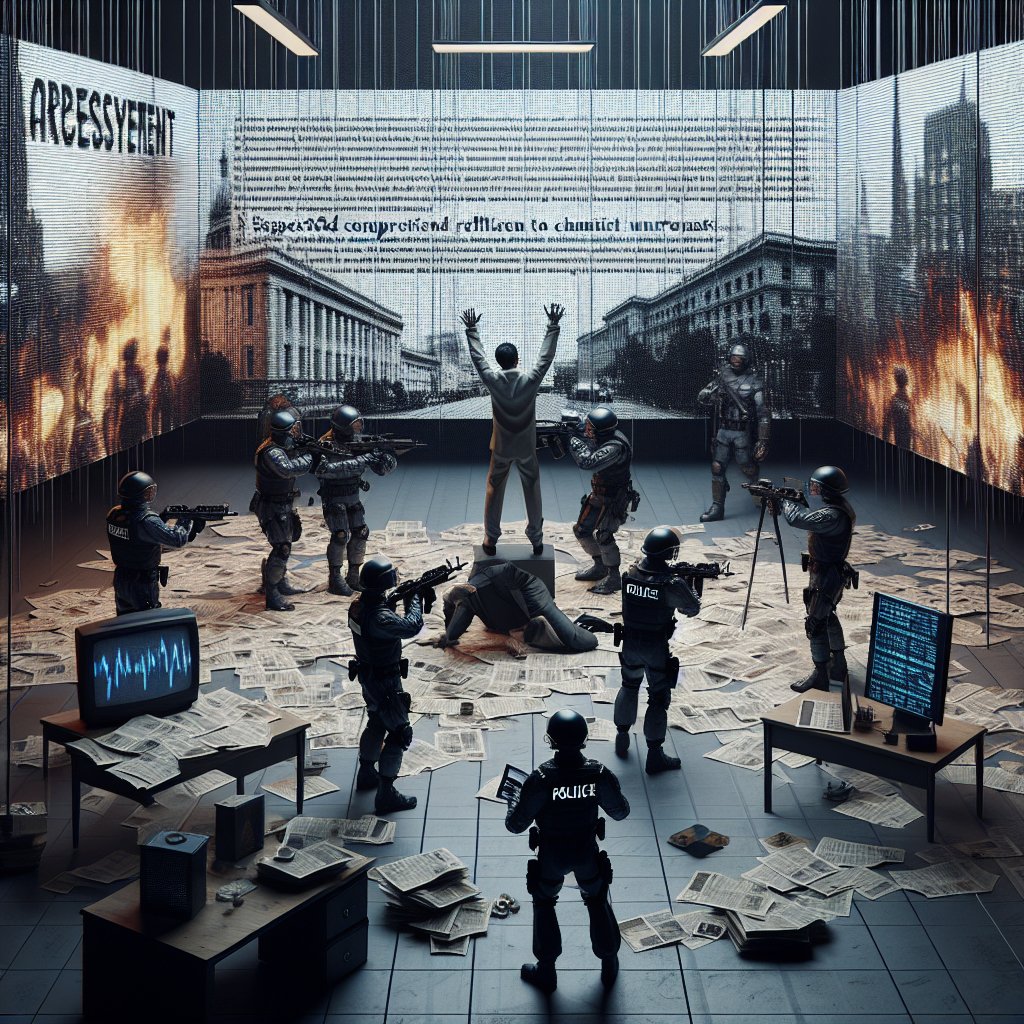Image created by AI
Former MK Party Youth Leader Arrested for Inciting Public Violence
In a significant crackdown on alleged instigators of public unrest, the Directorate for Priority Crime Investigation, commonly known as the Hawks, apprehended 34-year-old former MK Party youth leader Bonginkosi Khanyile. On Friday, August 16, 2024, Khanyile was detained for reportedly contravening the Riotous Assemblies Act, also facing accusations related to conspiracy to commit public violence in Johannesburg earlier this year.
The contentious figure was arrested by members of the KwaZulu-Natal Crime Against The State unit in the surroundings of the Durban Magistrate's Court, amidst his court appearance regarding previous charges from July 2021. This development underscores the gravity of the allegations against Khanyile, which accuse him of instigating civil unrest.
Reports suggest that Bonginkosi Khanyile, during a press briefing in Johannesburg in March 2024, spurred citizens to protest and incited them to engage in acts of violence comparable to the upheaval witnessed in July 2021. It is further alleged that his proclamation entailed urging South Africans to loot should his political faction – supporting former president Jacob Zuma – be excluded from the electoral ballot.
Khanyile's controversial statements resonate with the public's memory of the July 2021 disorder, underscoring the sensitivity around electoral proceedings. During the mentioned press briefing, Khanyile forewarned of "declaring war" upon the Independent Electoral Commission's (IEC) actions regarding MK's status and Zuma's campaign representation. His rhetoric was charged, with implications on the political and civil serenity of the nation.
Despite the gravity of these proceedings, Khanyile was granted bail and is scheduled to make a court appearance again on September 23, 2024, to face the charges for both the current and previous legal matters.
Interwoven with South Africa's turbulent history of political activism and civil unrest, the events leading up to Khanyile’s arrest spotlight the critical nexus between freedom of expression and the incitement of public disorder. The Riotous Assemblies Act, under which Khanyile has been charged, reflects an intricate legislative tool employed by the state to govern public order amidst political volatility.
As South Africa navigates the complexities of maintaining social stability while safeguarding democratic values, the legal proceedings against Khanyile are anticipated to set a precedent for political expression and its boundaries.
The seizure and arraignment of Bonginkosi Khanyile signal the state's resolve against conduct potentially igniting public disorder. This arrest also emblematizes the fragility of South African democracy, where inflammatory rhetoric can lead to palpable disruptions.
The country hence continues to balance an individual's right to political expression against the collective need for public safety and order.










